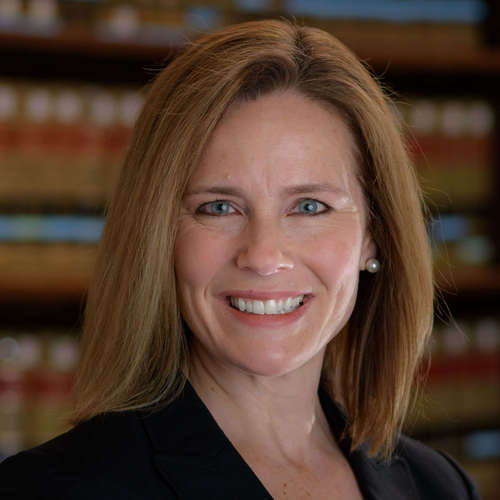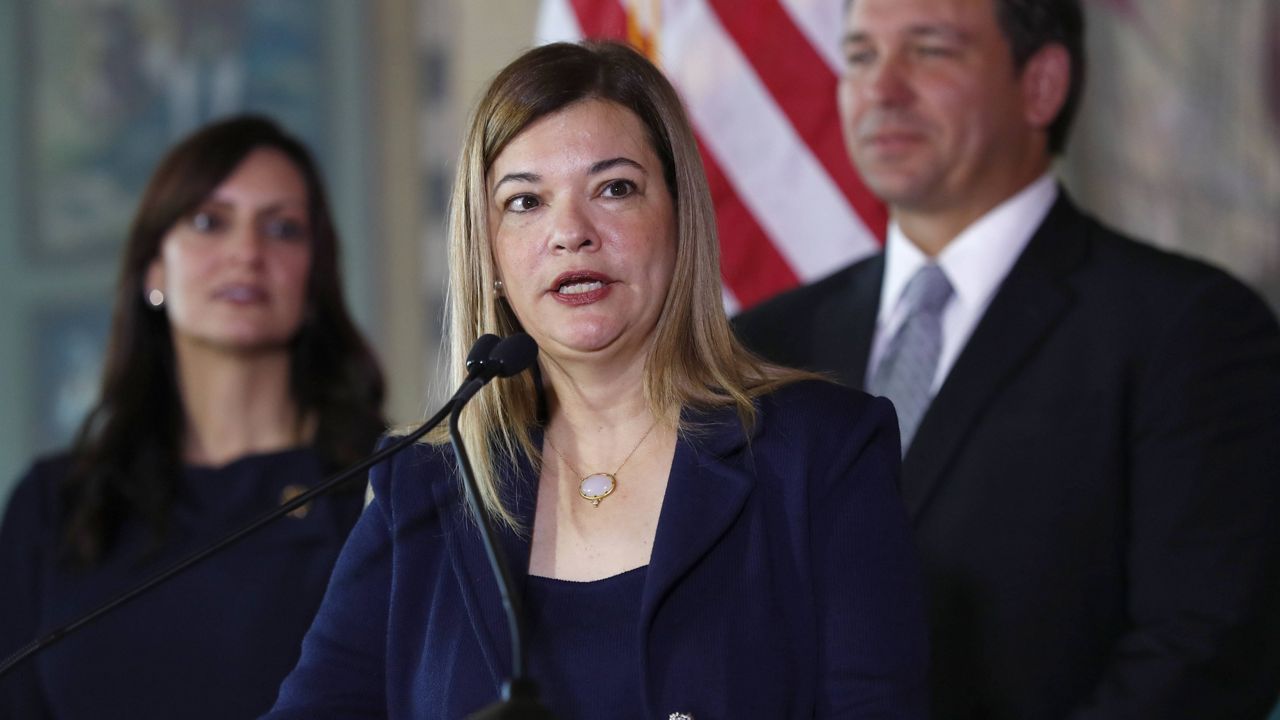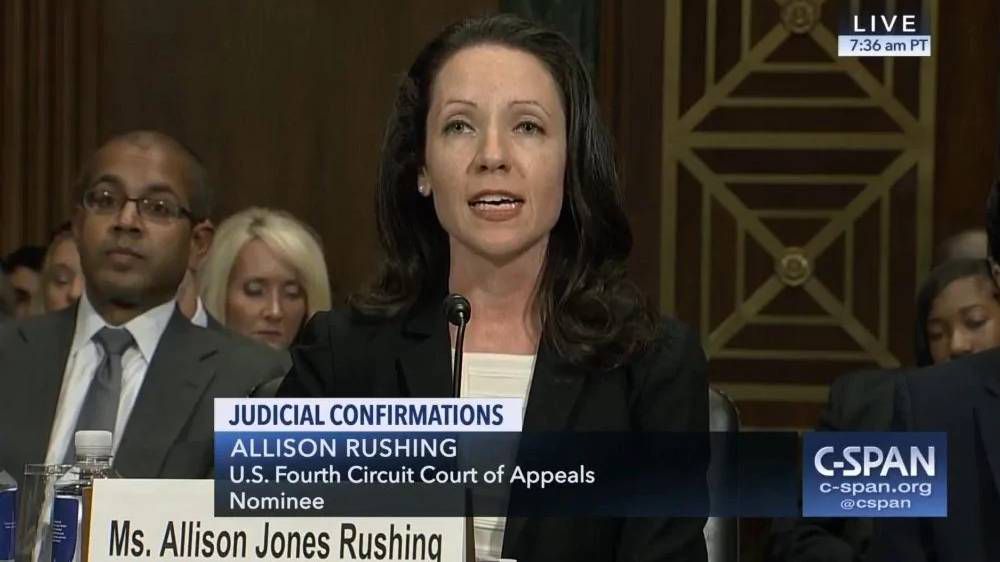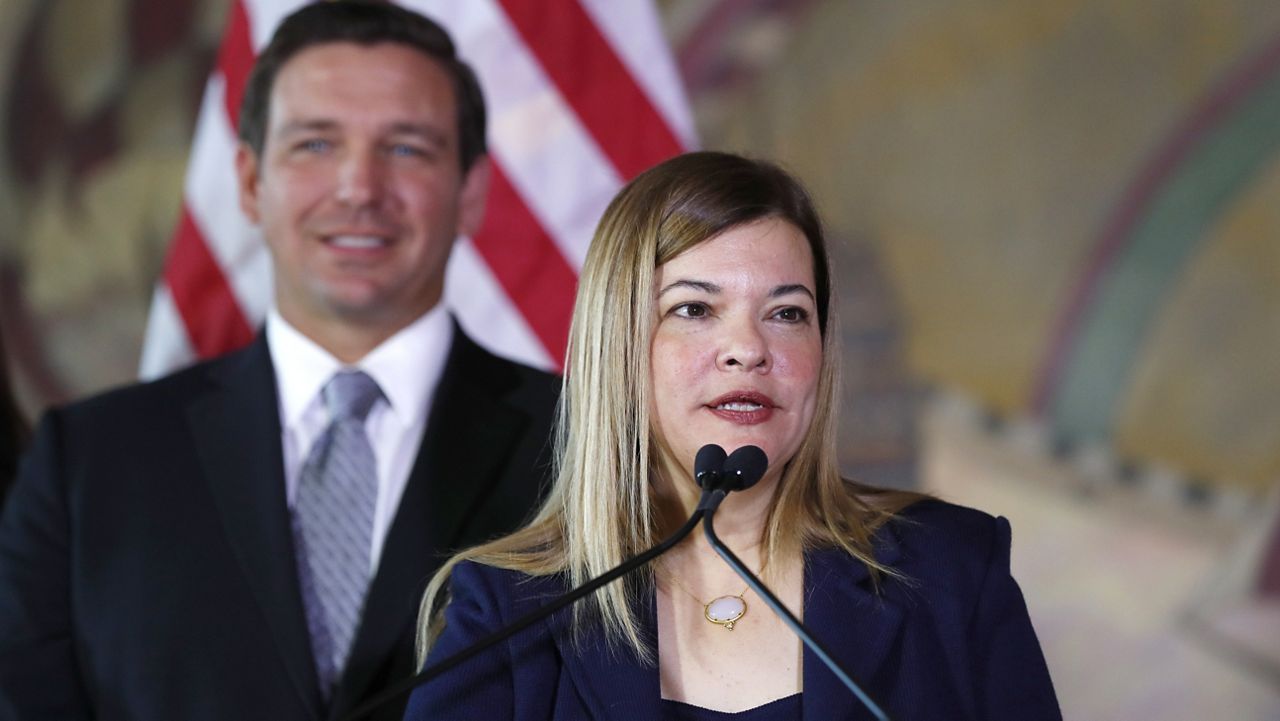As a possible showdown looms in Washington, D.C., over whether or not the Senate should vote on a Supreme Court nominee before the election, speculation is building as to whom President Donald Trump will nominate to fill Ruth Bader Ginsburg’s seat on the Supreme Court.
The president has already promised his pick will be a woman. He said Monday he plans to make an announcement Friday or Saturday.
Trump also said he’s already narrowed down his list to four or five finalists. While we don’t know who is on his short list, here’s a look at three possibilities who are believed to be front-runners, based on media reports.

The 48-year-old federal appeals court judge is widely considered to be the favorite for the nomination, according to multiple reports.
Barrett was considered for the Supreme Court in 2018 before Trump nominated Brett Kavanaugh. But Trump has hinted Barrett would be his choice if he had the opportunity to appoint another justice.
"I'm saving her for Ginsburg," Trump once said privately of Barrett, Axios reported.
Barrett was a law professor at Notre Dame before Trump appointed her to the Seventh Circuit Court of Appeals in 2017.
A devout Catholic, she is popular among Christians and anti-abortion activists — her past academic writings suggest she might be open to overturning Roe v. Wade.
Concerns that Barrett’s faith might impact her rulings was an issue during questioning in her 2017 confirmation hearing, with Sen. Dianne Feinstein, D-Calif., telling her, “The dogma lives loudly in you.”
Barrett insisted her personal beliefs would have “no bearing” on her legal decisions. And the exchange with Feinstein only seems to have made her more beloved in conservative circles.
“She is the perfect combination of brilliant jurist and a woman who brings the argument to the court that is potentially the contrary to the views of the sitting women justices,” Marjorie Dannenfelser, the president of the Susan B. Anthony List, an anti-abortion political group, told The New York Times.

Like Barrett, Lagoa is a federal appeals court judge and devout Catholic. Unlike Barrett, however, she has extensive bench experience.
A Cuban-American, Lagoa was a Florida appeals court judge for more than a decade before becoming the first Hispanic woman appointed to the state’s Supreme Court. Trump appointed her to the 11th District Court of Appeals in 2019.
After graduating from Columbia Law School, Lagoa in 1999 worked on the legal team representing the family of Elian Gonzalez, the 6-year-old Cuban boy who was found floating alone in an inner tube off the Florida coast. She went on to serve as a federal prosecutor.
A group of Republican Florida politicians — led by Sen. Marco Rubio and Gov. Ron DeSantis — is urging Trump to nominate Lagoa, 52, to the Supreme Court, arguing that the move could help him win the Latino vote in the battleground state on Election Day, Politico reported.
“If the president picks Barbara Lagoa, they will be dancing salsa with joy in Hialeah well past November,” said U.S. Rep. Matt Gaetz, R-Fla., referring to Lagoa’s hometown.
Trump confirmed during an interview with “Fox & Friends” on Monday that he is seriously considering Lagoa.
"She's excellent, she's Hispanic, she's a terrific woman from everything I know,” he said. “I don't know her. Florida, we love Florida. So she's got a lot of things, very smart.”
Lagoa’s views on abortion are not clear, as she has not had to rule on any high-profile cases on the issue during her career.

At just 38 years old, Rushing, a 4th Circuit Court of Appeals judge, is an attractive option to conservatives hoping to maximize the next justice’s time on the high court. But the North Carolina native is accompanied by the sort of controversy Barrett and Lagoa do not present.
Democrats and LGBTQ groups opposed Rushing’s confirmation in 2019 due to her decadelong relationship with the Alliance Defending Freedom, which has a long track record of opposing the rights of lesbian, gay, bisexual and transgender individuals and was designated a “hate group” by the Southern Poverty Law Center.
In a written response to Senators’ questions then, Rushing defended the organization, for which she interned as a law student and later spoke at its events and wrote amicus briefs supporting its positions.
"In my experience with ADF, I have not witnessed anyone expressing or advocating hate," she said. "A number of leading Supreme Court practitioners at well-regarded national law firms work with ADF. Members of Congress, including members of this Committee, have filed amicus briefs in the Supreme Court supporting ADF's positions. I do not think members of this Committee or large reputable law firms would work with a hate group. I certainly would not."
But if Trump is hoping to expedite the nomination process as Election Day quickly approaches and Democrats scream hypocrisy after the GOP blocked Obama’s Supreme Court pick in 2016, there is likely no margin of error, and Rushing’s road to confirmation does not appear to be as smooth as Barrett’s or Lagoa’s would be.
Before being appointed to the appeals court, Rushing was a lawyer for the D.C. firm Williams & Connolly. She also clerked for Supreme Court Justice Clarence Thomas as well as now-Justice Neil Gorsuch when he was an federal appeals court judge.



